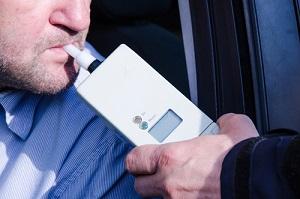Are Breathalyzers Accurate?
 Breathalyzers are the most commonly used form of testing used to find a driver’s blood-alcohol content (BAC). Usually administered by a police officer during a traffic stop, breathalyzers are used to determine if a driver is driving under the influence of alcohol. Although they are used quite frequently, breathalyzers are not the most accurate measure of how much alcohol an individual has consumed. A blood test is much more precise, but blood tests cannot be easily administered during a traffic stop.
Breathalyzers are the most commonly used form of testing used to find a driver’s blood-alcohol content (BAC). Usually administered by a police officer during a traffic stop, breathalyzers are used to determine if a driver is driving under the influence of alcohol. Although they are used quite frequently, breathalyzers are not the most accurate measure of how much alcohol an individual has consumed. A blood test is much more precise, but blood tests cannot be easily administered during a traffic stop.
In most cases, a breathalyzer will only be administered if the police officer has reasonable suspicion that a driver is under the influence of alcohol. If an individual has more than 80 mg alcohol per 100 mL of blood in their body, he or she is considered over the legal limit in Illinois.
Sources of Error
Over the years, many individuals and groups have called the accuracy of breathalyzers into question. In February, thousands of tests were thrown out in Boston after suspicion that the tests were erroneous. The machines were found to be improperly calibrated and maintained by the state of Massachusetts. Another source of error is interfering compounds found in the breath which can significantly affect the test results. Substances such as lacquer, paint remover, gasoline, cleaning fluids, and other ethers/alcohols can result in a false positive reading on some breathalyzer machines.
Diabetics have a higher amount of ether alcohol in their body which has been found to cause a false positive in some older breathalyzer machines. Those suffering from kidney disease can be at risk for inaccurate BAC readings as well. Acid reflux, belching, and alcohol trapped in dentures or dental fixtures have also been cited as causes for inaccurate BAC readings.
Breathalyzer Myths
Methods to "trick" breathalyzers have mostly been debunked. Some drivers hoping to avoid a DUI conviction have unsuccessfully tried eating breath mints or gargling mouthwash before the test. Others have touted the efficacy of putting pennies and batteries in one’s mouth before taking a breathalyzer test. Although these methods may decrease the smell of alcohol on the breath, they do not decrease the amount of alcohol in the blood. Residual mouth alcohol from mouthwash, in fact, can result in a BAC which is much higher than the actual amount of alcohol in a person’s bloodstream. Regardless, police are trained to wait 15-20 minutes for mouth alcohol or other possible interferences to dissipate before administering the test.
We Can Help
If you have been arrested and charged with driving under the influence, an experienced Kane County criminal defense attorney can offer the guidance and representation you need. We are prepared to challenge breathalyzer results when appropriate, and we will work hard on your behalf throughout the process. Call 847-488-0889 for a free consultation today.
Sources:
http://www.wcvb.com/article/thousands-of-brethalyzer-tests-thrown-out/8949508
http://www.sciencedirect.com/science/article/pii/S0379073801005345








